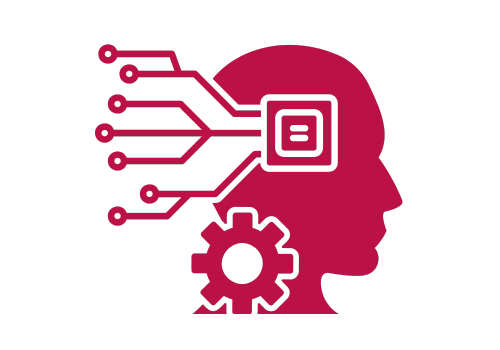Deep Dive into Deep Learning
Unravel the Mysteries of Modern Neural Networks and Their Applications
Why This Training?
As artificial intelligence continues to redefine industries, deep learning emerges as its most transformative subset. From self-driving cars to advanced medical diagnosis, deep learning algorithms power some of the most cutting-edge advancements. This training provides a solid foundation in the principles and practices of deep learning, equipping participants with the knowledge to navigate this dynamic frontier.
Duration: 15 Hours (online / virtual live session)

Who Should Attend?
AI enthusiasts eager to grasp the intricacies of deep neural networks.
Data scientists and machine learning practitioners aiming to elevate their skills.
Tech leaders and managers aiming to make informed decisions on AI projects.
Researchers transitioning into the AI and deep learning domain.
Software developers keen on integrating deep learning functionalities into applications.
Data scientists and machine learning practitioners aiming to elevate their skills.
Tech leaders and managers aiming to make informed decisions on AI projects.
Researchers transitioning into the AI and deep learning domain.
Software developers keen on integrating deep learning functionalities into applications.

Course Highlights
Foundations of Neural Networks: Dive deep into perceptrons, activation functions, and the architecture of neural networks.
CNNs & RNNs: Unpack the mechanics behind Convolutional Neural Networks and Recurrent Neural Networks.
CNNs & RNNs: Unpack the mechanics behind Convolutional Neural Networks and Recurrent Neural Networks.
See more
Regularization Techniques: Discover dropout, early stopping, and other methods to improve model generalization.
Transfer Learning: Harness pre-trained models to expedite the development process.
Generative Models: Explore the fascinating world of GANs and their myriad applications.
Hands-on Exercises: Engage in real-world projects, simulating challenges and solutions in deep learning.
Toolkits & Frameworks: An introduction to popular deep learning tools like TensorFlow and PyTorch.
Ethics & Bias in AI: Address challenges and considerations in building unbiased models.
Future of Deep Learning: Gain insights into upcoming trends and research areas.
Transfer Learning: Harness pre-trained models to expedite the development process.
Generative Models: Explore the fascinating world of GANs and their myriad applications.
Hands-on Exercises: Engage in real-world projects, simulating challenges and solutions in deep learning.
Toolkits & Frameworks: An introduction to popular deep learning tools like TensorFlow and PyTorch.
Ethics & Bias in AI: Address challenges and considerations in building unbiased models.
Future of Deep Learning: Gain insights into upcoming trends and research areas.

Pre-requisites
Basic understanding of machine learning concepts.
Familiarity with Python programming.
Knowledge of linear algebra, calculus, and statistics (helpful but not mandatory).
Familiarity with Python programming.
Knowledge of linear algebra, calculus, and statistics (helpful but not mandatory).
Training Materials Needed by Participants
A laptop or desktop with internet access.
Python environment set up (preferably Anaconda).
TensorFlow and/or PyTorch installed (installation guidelines will be provided before the training).
Access to platforms like Google Colab or Jupyter Notebooks.
Course-related datasets and materials, which will be shared before sessions
Write your awesome label here.
Training Content
Introduction to the Data World
1. Introduction to Deep Learning and Neural Networks
Objective: Provide a foundational understanding of deep learning and its key concepts.
- Introduction to machine learning and deep learning
- Historical context and the rise of deep learning
- Basic anatomy of a neural network
- Activation functions: Sigmoid, ReLU, Tanh, etc.
- Forward propagation in neural networks
2. Training Neural Networks
Objective: Delve deep into the mechanisms of training neural networks and the challenges therein.
- Loss functions: Mean Squared Error, Cross-Entropy, etc
- Backpropagation explained
- Gradient descent and its variants: Batch, Mini-Batch, Stochastic
- Challenges in training deep networks: Vanishing & Exploding gradients
- Introduction to optimization techniques: Momentum, RMSprop, Adam
3. Convolutional Neural Networks (CNNs)
Objective: Introduce participants to the specialized domain of deep learning catered to image data.
- Image representation and preprocessing
- Intuition behind convolutional layers
- Pooling layers: MaxPooling, AveragePooling
- CNN architectures: LeNet, AlexNet, VGG, etc.
- Image classification and object detection using CNNs
4. Recurrent Neural Networks (RNNs) and Sequence Data
Objective: Uncover the mechanics behind neural networks tailored for sequential data.
- Basics of sequence data and its challenges
- Intuition behind RNNs.
- Problems with vanilla RNNs: Vanishing gradient problem
- LSTM and GRU: Evolution of RNNs
- Applications: Text generation, time-series forecasting
5. Advanced Deep Learning Concepts and Real-world Applications
Objective: Round off with advanced topics in deep learning and how they're applied in various industries
- Transfer learning and pre-trained models
- Introduction to Generative Adversarial Networks (GANs)
- Reinforcement Learning basics
- Real-world applications: Healthcare, finance, autonomous vehicles
- Future trends and continuous learning resources
Each session is designed to progress from foundational to advanced topics, ensuring participants grasp the depth and breadth of deep learning. Hands-on exercises, demonstrations, and real-world examples should be integrated throughout the course to reinforce learning and provide practical exposure.
WOMEN AI ACADEMY
Women AI Academy is a gender-equality and technology driven learning & development organization
Site Terms & Info
ETHOS AI Training & Consulting GmbH
Weihenstephanerstr.1281673
Munich-Germany
We are driven by the vision of making AI both ethical and accessible to everyone
Copyright © 2024 Brought to you by Ethos ai AI Training & Consultancy GmbH
Ali Hessami is currently the Director of R&D and Innovation at Vega Systems, London, UK. He has an extensive track record in systems assurance and safety, security, sustainability, knowledge assessment/management methodologies. He has a background in the design and development of advanced control systems for business and safety-critical industrial applications.
Hessami represents the UK on the European Committee for Electrotechnical Standardization (CENELEC) & International Electrotechnical Commission (IEC) – safety systems, hardware & software standards committees. He was appointed by CENELEC as convener of several Working Groups for review of EN50128 Safety-Critical Software Standard and update and restructuring of the software, hardware, and system safety standards in CENELEC.
Ali is also a member of Cyber Security Standardisation SGA16, SG24, and WG26 Groups and started and chairs the IEEE Special Interest Group in Humanitarian Technologies and the Systems Council Chapters in the UK and Ireland Section. In 2017 Ali joined the IEEE Standards Association (SA), initially as a committee member for the new landmark IEEE 7000 standard focused on “Addressing Ethical Concerns in System Design.” He was subsequently appointed as the Technical Editor and later the Chair of P7000 working group. In November 2018, he was appointed as the VC and Process Architect of the IEEE’s global Ethics Certification Programme for Autonomous & Intelligent Systems (ECPAIS).
Trish advises and trains organisations internationally on Responsible AI (AI/data ethics, policy, governance), and Corporate Digital Responsibility.
Patricia has 20 years’ experience as a lawyer in data, technology and regulatory/government affairs and is a registered Solicitor in England and Wales, and the Republic of Ireland. She has authored and edited several works on law and regulation, policy, ethics, and AI.
She is an expert advisor on the Ethics Committee to the UK’s Digital Catapult Machine Intelligence Garage working with AI startups, is a Maestro (a title only given to 3 people in the world) and expert advisor “Maestro” on the IEEE’s CertifAIEd (previously known as ECPAIS) ethical certification panel, sits on IEEE’s P7003 (algorithmic bias)/P2247.4 (adaptive instructional systems)/P7010.1 (AI and ESG/UN SDGS) standards programmes, is a ForHumanity Fellow working on Independent Audit of AI Systems, is Chair of the Society for Computers and Law, and is a non-exec director on the Board of iTechlaw and on the Board of Women Leading in AI. Until 2021, Patricia was on the RSA’s online harms advisory panel, whose work contributed to the UK’s Online Safety Bill.
Trish is also a linguist and speaks fluently English, French, and German.
In 2021, Patricia was listed on the 100 Brilliant Women in AI Ethics™ and named on Computer Weekly’s longlist as one of the Most Influential Women in UK Technology in 2021.

